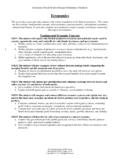Transcription of The Basics of Tax Free Business Acquisitions: You
1 The Basics of Tax free Business Acquisitions: What You Don't Know Could Hurt YouPeter J. Guy, Grossman & Schole 370 1300 Copyright Peter J. Guy, 2010 All Rights ReservedPresenterTax attorney Peter J. Guy specializes in federal income tax law. Mr. Guy has extensive experience providing federal income tax advice to public and private companies with a particular emphasis on mergers, acquisitions, securities offerings and divestitures. He advises real estate funds, private equity funds, hedge funds, limited liability companies, partnerships, S corporations and similar entities on tax issues relevant to the formation and operation of such entities.
2 He has experience advising real estate investors and developers on tax issues arising out of the ownership and operation of real estate, including certain tax credit advice. His experience includes advising domestic and international clients regarding cross border tax issues and certain New York state and local tax issues. Mr. Guy also has experience advising clients that have special tax considerations such as real estate investment trusts and tax exempt entities. Prior to joining Ellenoff Grossman & Schole LLP, Mr.
3 Guy was associated with the law firms of Paul, Weiss, Rifkind, Wharton & Garrison, LLP and Bryan Cave, LLP. Mr. Guy is admitted to practice in the state of New York and is a member of the American Bar Association s Section of Taxation. Mr. Guy received his Juris Doctorate from Harvard Law School where he graduated cum laude and his Bachelor of Science degree from Northeastern University where he graduated summa cum Peter J. Guy, 2010 All Rights ReservedWhy do a Tax free Deal? Sellers prefer not to pay tax when they sell their businesses (don t we all?)
4 Example: private start up software company is being acquired by big public software company Private company stockholders can receive public company stock and decide when they want to pay tax on gains by selling stock in the futureCopyright Peter J. Guy, 2010 All Rights ReservedWhy tax free deals may hurt buyers A buyer may prefer a taxable deal to get a step up in basis Tax free deals require the buyer to take the seller s old, lower tax basis Example: Seller owns a corporation ( Target ) with Business assets having a tax basis of $30 and a value of $100 Buyer agrees to acquire Target for $100 worth of Buyer stock in a tax free deal.
5 Following that transaction, Buyer will own assets with a tax basis of $30. If Buyer had instead purchased Target s assets for $100 in cash, it would receive a $100 tax basis in those assets. The additional $70 could generate tax value to Buyer in the form of increased depreciation Peter J. Guy, 2010 All Rights ReservedTax free Corporate Acquisitions This presentation deals primarily with corporate acquisitions Tax free acquisitions involving partnerships or entities taxed as partnerships (such as limited liability companies)
6 Are much easier to accomplish because the partnership acquisition rules are much more flexible This should influence the choice of entities for start up companies more than it currently does Corporate acquisitions are very form driven it is VERY important to pay attention to detailsCopyright Peter J. Guy, 2010 All Rights ReservedTax free Corporate Acquisitions Discussed in This Presentation The Alphabet Reorganizations Merger of two corporations ( Type A Merger) Triangular mergers involving three corporations (Acquiring corporation, a merger subsidiary controlled by Acquiror, and Target corporation) Stock for Stock exchanges ( Type B reorganizations) Asset acquisitions ( Type C reorganizations) Acquisitions using Section 351 or Section 721 Copyright Peter J.
7 Guy, 2010 All Rights ReservedRequirements Common to the Alphabet Reorganizations The Alphabet Reorganizations are all found under Code Section 368 To qualify, all Alphabet Reorganizations must meet certain common requirements: Pursuant to Plan of Reorganization Must meet continuity of interest, continuity of Business enterprise and Business purpose tests Continuity of Interest requires that Target stockholders receive a minimum amount of stock IR S regulations require that at least 40% of the property received by Target stockholders must be Acquiring company stock Continuity of Business Enterprise requires continuation of some portion of the Target s pre acquisition Business Must not be part of a step transaction that results in the overall transaction being taxable.
8 Step transactions are two or more transactions that are linked together, either because they are part of a plan or are deemed part of a plan based on the facts. Copyright Peter J. Guy, 2010 All Rights ReservedBenefits of Tax free Reorganizations Neither Target nor Acquiring corporation recognizes gain or loss in the reorganization Target Shareholders do not pay tax if they receive all stock Target Shareholders who receive a blend of stock and other taxable property such as cash recognize gain to the extent of such cash Example: Target shareholders have a basis of $20 in their stock with a fair market value of $100 (so $80 of unrealized gain).
9 The shareholders receive $70 worth of Acquiror stock in a valid reorganization plus $30 of cash. Under the reorganization rules, the Target shareholders will pay tax on $30 of gain. The remaining $50 of gain remains untaxed until Acquiror stock is sold. Copyright Peter J. Guy, 2010 All Rights Reserved Type A Merger Reorganization Merger Transaction:Acquiring Corporation ShareholdersTarget CorporationShareholdersAcquiringCorporat ionTargetCorporationTarget merges into Acquirer with Acquirer surviving.
10 Target Assets transfer to Acquiring Co. by operation of lawAcquiring Co. issues stock (and/or other assets)To Target shareholders,whose Target Stock is Cancelled. Post Merger:AcquiringCorporation ShareholdersTarget Corporation ShareholdersAcquiring CorporationTarget AssetsCopyright Peter J. Guy, 2010 All Rights ReservedHighlights of Type A Merger Typically the most flexible of all the reorganizations in terms of the type and form of transaction Not often done because for non tax reasons you may not want to commingle the assets and liabilities of one entity with the assets and liabilities of another To solve the liability problem, can use the triangular mergers detailed on next two slides RISK if you fail to satisfy any of the requirements for a Type A reorg.








